
Swiss theatre director Milo Rau stages revolution in Vienna
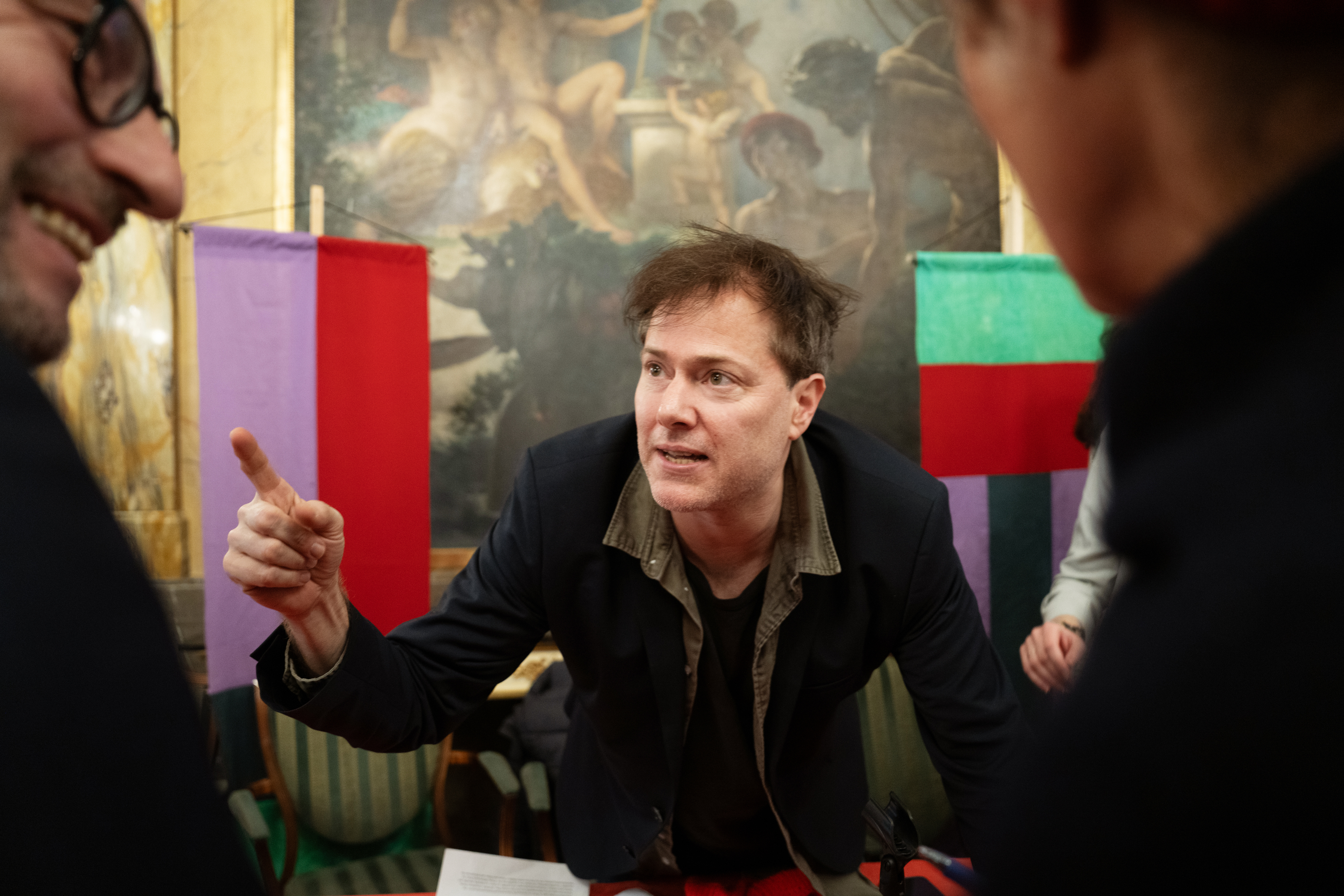
Milo Rau is renowned for his radical political plays, both in format and content. As the new artistic director of the Vienna Festival, he brings a fresh perspective to the event putting everyone on trial: the Austrian government, the right-wing Freedom Party, and even himself.
“Vienna must burn!” the 47-year-old from Bern called out to the audience when he proclaimed the “Free Republic of Vienna” at the Vienna Festival.
Rau’s staged revolution is backed by the “Council of the Republic”, a body of 100 members that holds weekly hearings. The national anthem of his new republic starts with the words: “Go home, capitalisti!” So far, the bank sponsoring the event has not complained.
The Vienna Festival, a renowned cultural event featuring theatre plays, opera and dance performances over five weeks, takes an intriguing turn this year. Under the direction of Rau, visitors can experience “show trials” where his newly created republic holds court over Austria. It all happens in a courtroom with witnesses, lawyers and real judges.
Of course, it’s all theatre. Nevertheless, the festival has never been so political.
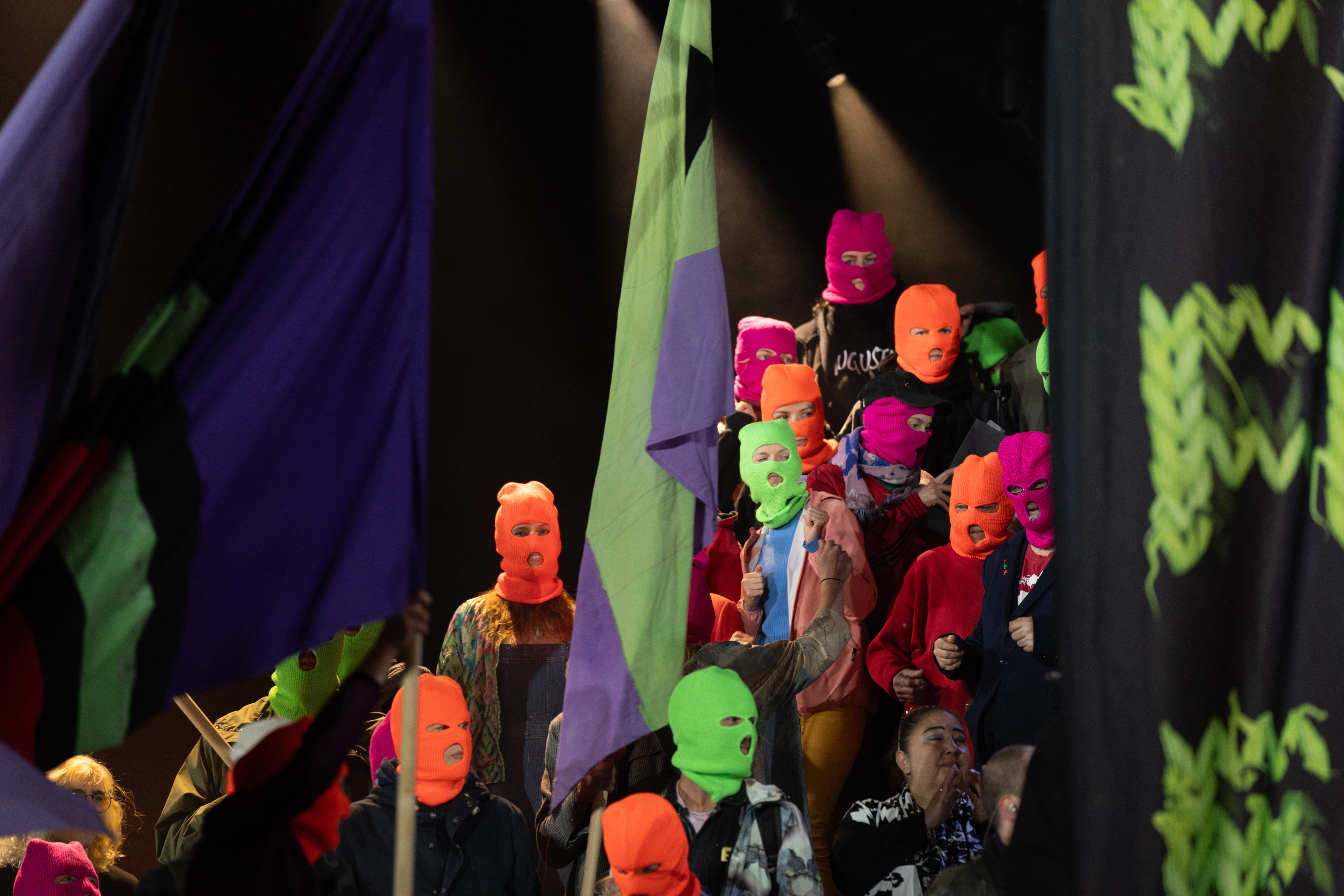
“The scale of this project is gigantic. The trials are as big as everything previous altogether,” Rau tells SWI swissinfo.ch. “Considering how we’ve managed to engage the entire city, we have surpassed all expectations.”
Rau refers to the event’s popularity among the public: ten days before the festival ended, more tickets were sold than last year, which was a record-breaking season, Rau observes enthusiastically.
It is also popular among the media, which has widely reported on it, including the New York Times. Rau’s show trials have been a prominent feature throughout his career as theatre director.
Milo Rau’s “Free Republic of Vienna” used Switzerland as an example. He views direct citizen participation through referendums as a valuable democratic tool in society: “I believe that Switzerland is the best example for a functioning democracy.”
He said Switzerland’s democracy was already functioning before the country became wealthy. According to Rau, the concept of a Willensnation – a country that was founded not on ethnic homogeneity but on a “will” to cooperate for civic and political ends – is the basis of Swiss democracy. “We decided to speak four different languages, and the only reason for us to exist as one country is that we live on the same soil, and that’s enough for us.”
Referendums are important for making decisions, but what’s more important for Rau is what they mean for society. “Every other society I have come across lives in permanent division because it has never found a ritual to overcome this division,” he concludes.
Rau’s show trials
In 2013 Rau initiated the Zürcher Prozesse (Zurich Trials) which accused the Swiss news magazine Die Weltwoche of discriminating against minorities, while the Moskauer Prozesse (Moscow Trials) examined the charges against activist group Pussy Riot. The “Kongo Tribunals” in 2015 examined the causes of the civil war in eastern Congo.
On the first weekend of his courtroom play in Vienna, the Austrian government appeared in the dock. The court ruled on whether it had violated human rights during the Covid-19 pandemic.
Irmgard Griss, who was the former president of Austria’s Supreme Court of Justice, chaired the hearings. The seven members of the “People’s Jury” acquitted the government of violating human rights but found it guilty of not doing enough to protect vulnerable people during the pandemic.
On the second weekend, the right-wing Freedom Party of Austria (FPÖ) was put on trial, coinciding with the European elections, where the party significantly outperformed all other Austrian parties.
Frauke Petry, the former chairwoman of the hard-right Alternative for Germany (AfD), played the part of the defence in this case.
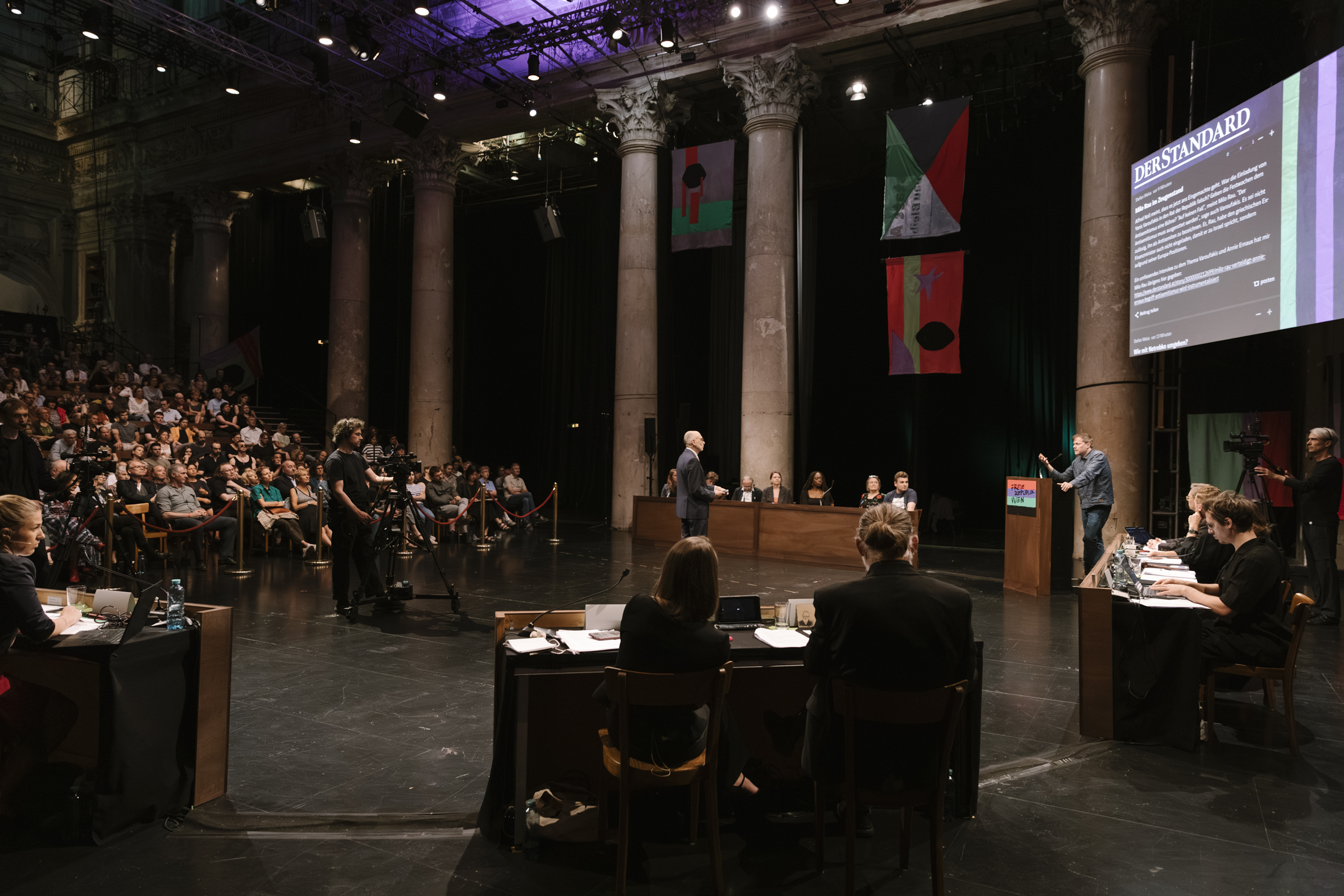
Petry described the trial as a platform for left-wing ideologists of the “Soviet Republic Vienna”, while Rau referred to the Freedom Party as “a party founded by former SS members and disgruntled National Socialists in the 1950s”.
One witness accused Rau of being a “communist artistic director”. In response, he described himself as merely a “left-liberal softie”.
The Freedom Party’s sentence turned out to be relatively lenient: five out of seven jury members found it not guilty, arguing that it was legitimate for a party in a democratic constitutional state to pursue anti-democratic objectives.
Rau’s accomplice
On the third weekend of the festival, three cases were brought to court. Among them was one involving climate activists who had glued themselves to a motorway; they faced charges of property damage and terrorism.
The case that caused the most uproar questioned the legitimacy of the police’s decision to break up a pro-Palestinian protest. The trial was repeatedly disrupted by a group critical of Israel who unexpectedly took the floor. They criticised the “hypocritical and politically empty Vienna Trials” until their microphones were muted.
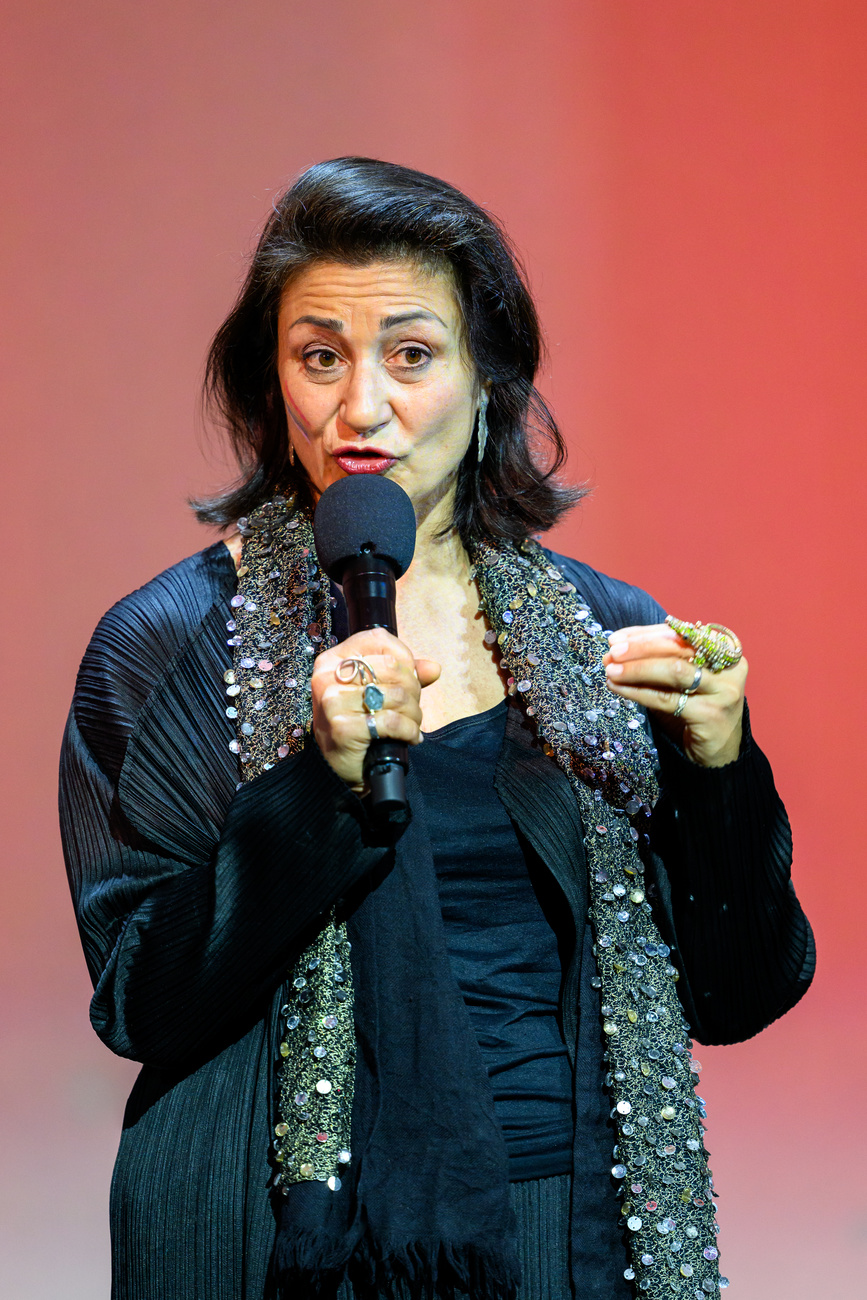
The weekend also saw several acquittals and one abstention due to lack of evidence.
In the last case, Rau found himself in the courtroom facing allegations of misusing funds that were intended for the Vienna Festival. He was accused of diverting €13.6 million (CHF13 million) towards his own ideological and political agendas rather than for the festival’s intended purposes.
The participants in the show trials were no actors but real lawyers, judges and politicians as the purpose was to disseminate political knowledge and boost political engagement.
Social Democrat city councillor for cultural affairs and science Veronica Kaup-Hasler, who was called in as a witness, described herself as an “accomplice”. She said the thought of being locked up with Milo Rau in a prison cell was rather appealing.
However, she never had the chance to experience it as the jury which was appointed by Rau himself found him not guilty.
Booed off stage
The audience was highly critical of Rau’s interpretation of Mozart’s opera La Clemenza di Tito, which sparked significant polarisation and loud boos from the audience.
In Rau’s production, the protagonist was an unpleasant influencer who wanted to instigate a revolution against the mild-mannered Emperor Tito. The slogan “Art is Power” was prominently written across the stage.
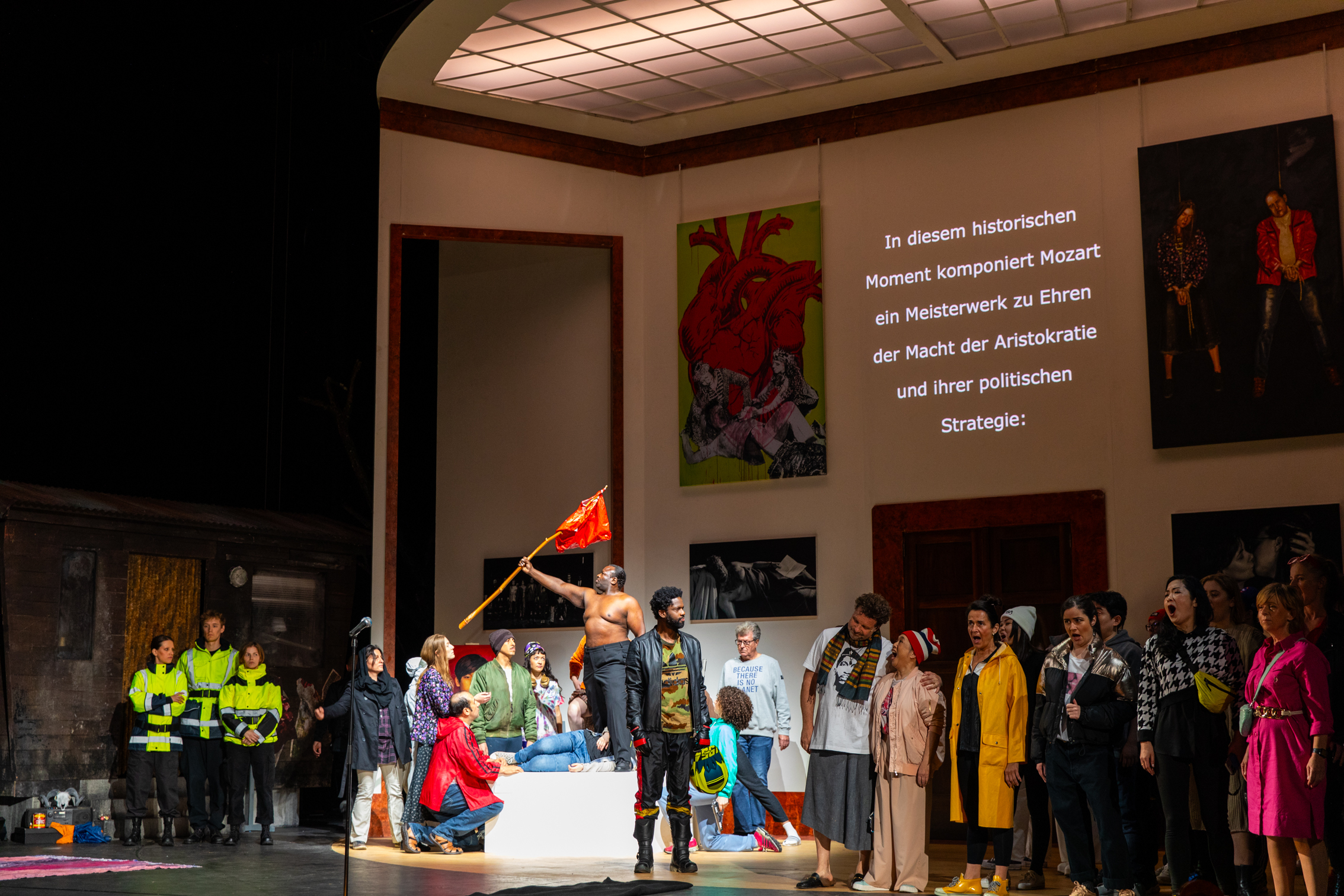
The opera also sought to attack Austria’s cultural establishment. However, traditional opera aficionados did not come to witness a revolution, and many were displeased with the production.
Even offstage, Kaup-Hasler expressed her excitement about the opera, particularly because of its positive international reception. “Milo Rau is throwing open the windows to the world,” she told SWI swissinfo.ch. “The extensive media coverage in German-speaking countries and even in the New York Times speaks for itself. I think we are lucky to have him in town.”
Protest against Omri Boehm
Kaup-Hasler’s party, the Social Democrats, may not fully share her enthusiasm as party members have already announced plans to “critically review” the event as the festival was not only marred by unwelcome pro-Palestinian disturbances but also by accusations of anti-Semitism.
This year’s “speech to Europe” was delivered by Israeli philosopher Omri Boehm who advocated for a binational state in Israeli-Palestinian territory. He called for the cultivation of an “art of forgetting, a politics of remembering to forget the Holocaust and the Nakba in order to undo rather than perpetuate them as the pillars of future politics”.
Boehm’s invitation to speak at the festival sparked significant protests. Members of the Jewish Community criticised Boehm and described his performance as the “wrong speech at the wrong placeExternal link”.
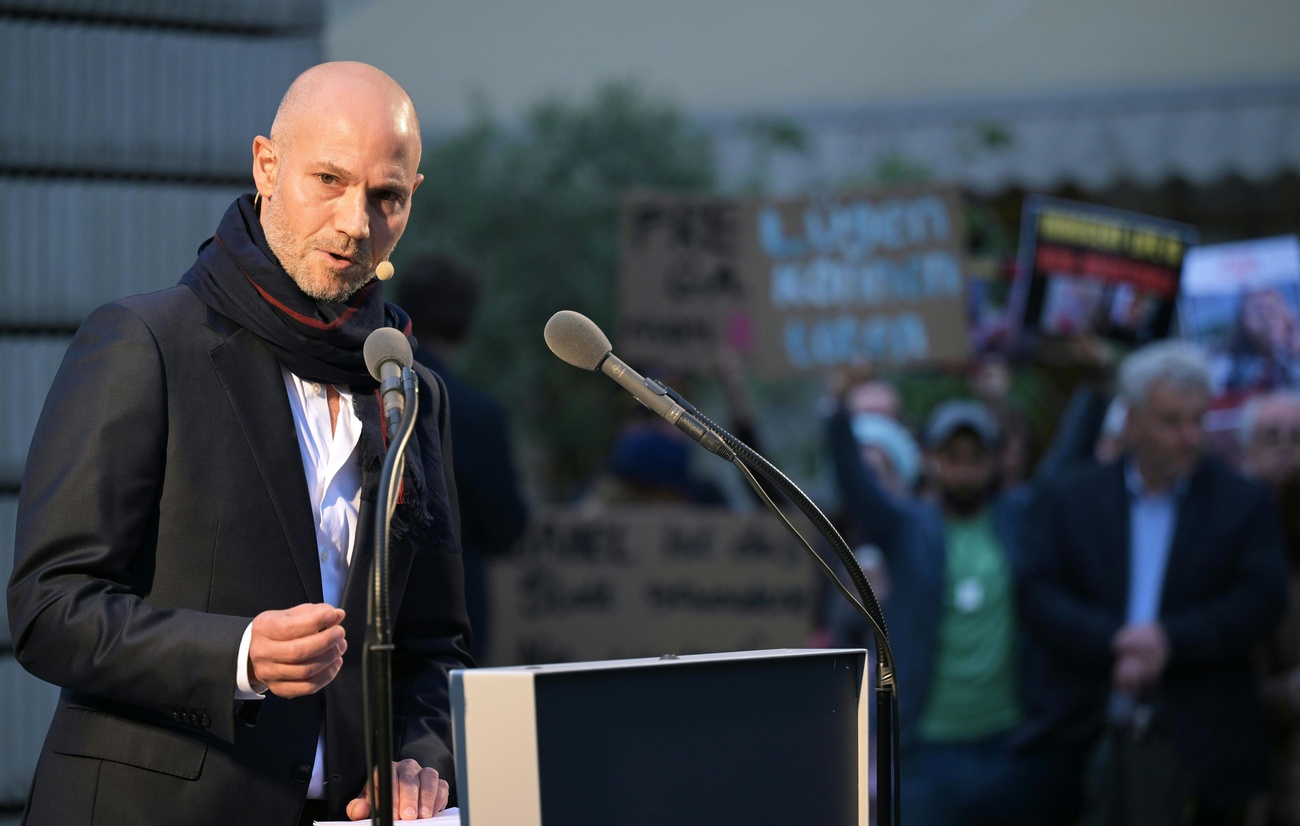
There was also some disruption from the other side of the spectrum. During the festival’s opening ceremony, a pro-Palestinian activist waved a banner with the colours of Palestine during a speech by a Polish Jewish director.
The festival’s management reacted, clearly stating it was similar to “waving the flag of a terrorist regime”.
Rau hit back at these anti-Semitic accusations. “It has nothing to do with what we do. I take the official stance that [our actions] devalue the term anti-Semitism.”
Some critics believe that being a self-employed director, Rau is willing to do anything to attract attention. Hence, it is not by chance that the festival’s flag bears the same colours as the Palestinian flag.
Is it coincidence or calculated provocation? During the festival, it became evident that Rau also faced opposition from pro-Palestinian groups.
Rau signed a five-year contract with the festival, which gives him ample time to work on his project. Next year, he wants to go “one step further”, which indicates that the upcoming festival under his management will be anything but boring.
Edited by Benjamin von Wyl. Adapted from German by Billi Bierling/ts
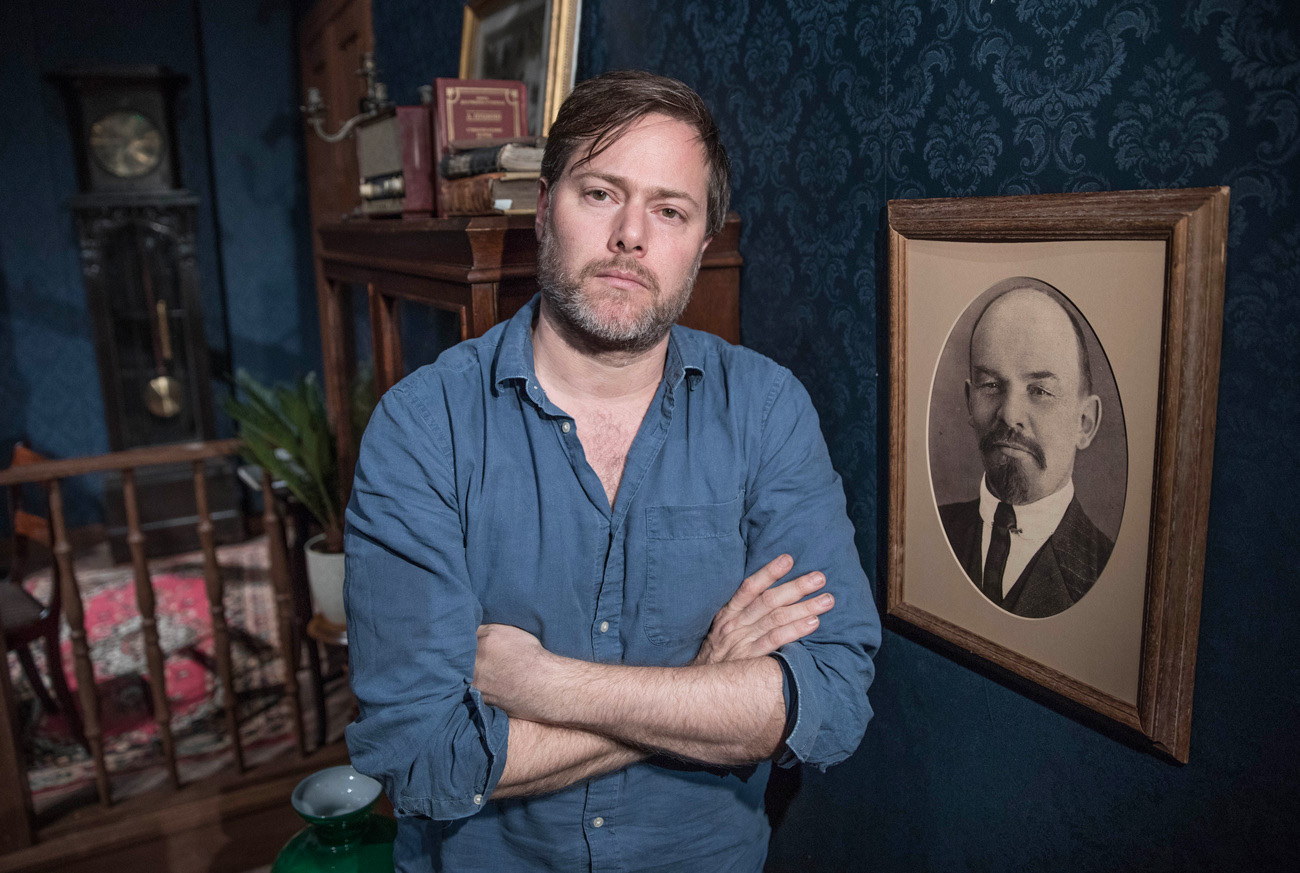
More
Theatre director Milo Rau, the friendly revolutionary

In compliance with the JTI standards
More: SWI swissinfo.ch certified by the Journalism Trust Initiative


























You can find an overview of ongoing debates with our journalists here . Please join us!
If you want to start a conversation about a topic raised in this article or want to report factual errors, email us at english@swissinfo.ch.